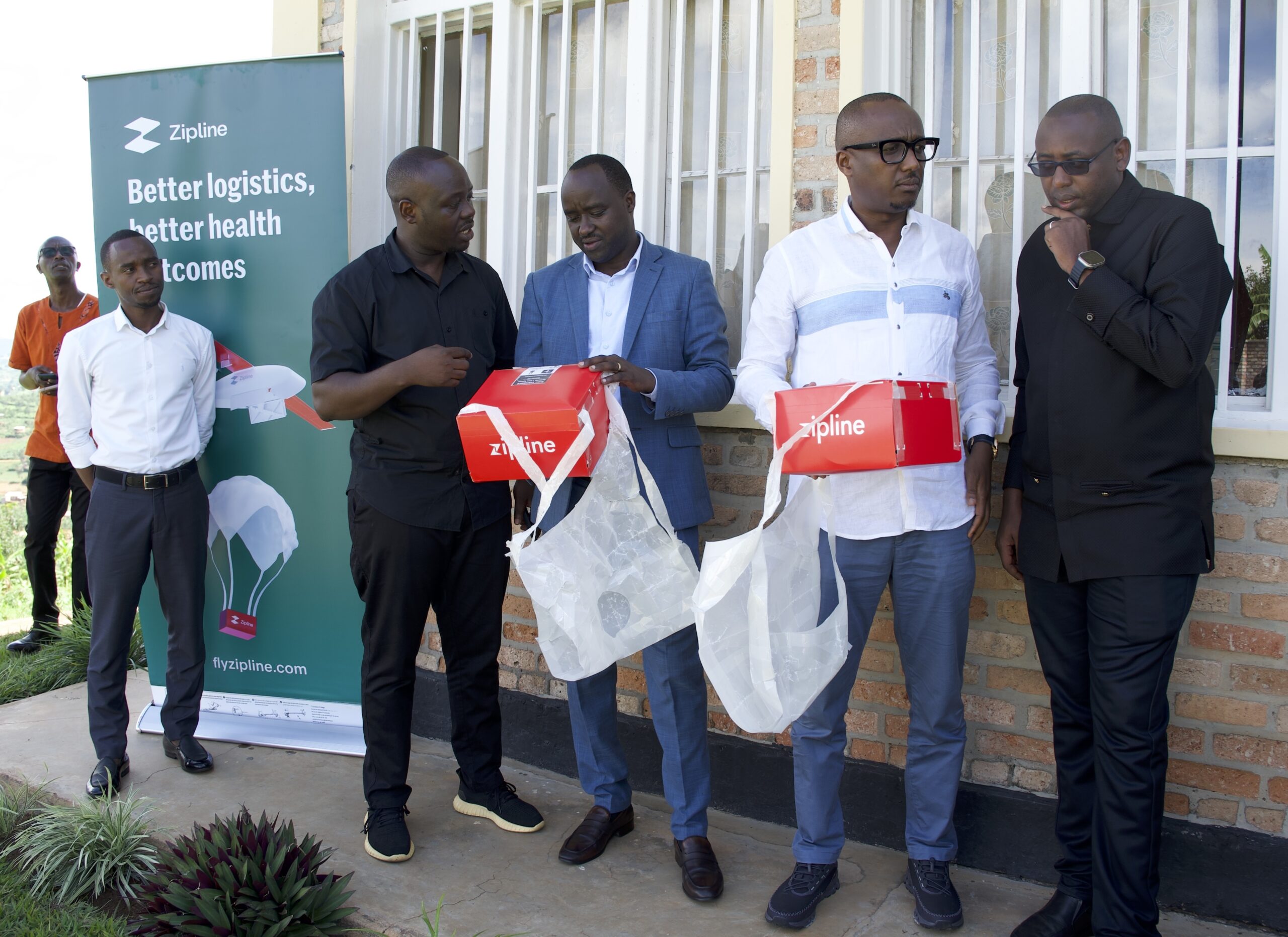advertisement
Zipline Partners With Rwanda Biomedical Centre

Autonomous logistics system, Zipline, and the Rwanda Biomedical Centre (RBC) have launched a 12-month pilot focused on the distribution of critical malaria medications to three districts in Rwanda. The districts include Gisagara, Nyamasheke, and Nyagatare, that have experienced a recent rise in malaria cases.
The collaboration will leverage Rwanda Biomedical Centre’s deep expertise in malaria program management and Zipline’s autonomous drone technology to address the challenges associated with the timely delivery of severe malaria medication and second-line malaria treatments such as Artesunate-Pyronaridine and Dihydro-Artemisinin in the chosen districts.
Since launching in Rwanda in 2016, Zipline has expanded its footprint across the country, serving 47 hospitals, 454 health centres and over 100 health posts. This pilot will target 70 health facilities in the 3 districts, selected based on the high incidence of severe malaria cases and the rural nature of these locations.
advertisement
Zipline will centralize inventory management, eliminating stockouts and preventing misallocation that leaves some facilities overstocked and others understocked. By ensuring the consistent availability of life-saving malaria treatments in these districts, this project will generate measurable improvements in health outcomes, strengthen Rwanda’s healthcare supply chain and build a scalable model for disease response in other districts.
While Rwanda has made significant progress toward malaria eradication, recent data from the Rwanda Biomedical Centre highlights that the mosquito-borne disease continues to pose a major health challenge in parts of the country, with sharp increases in overall and severe cases. The total number of malaria cases increased by 46 per cent in 2024, and severe cases more than doubled, with a 151 per cent increase in cases requiring hospitalisation. These figures underscore the urgent need for targeted interventions to restrain malaria transmission and improve case management.
Several challenges contribute to the rising malaria burden in Rwanda, including frequent stockout of malaria commodities at health facilities, delayed health-seeking behaviour (often driven by inconsistent availability of health commodities) resulting in the progression of mild cases to severe malaria, drug and insecticide resistance that undermines the effectiveness of current interventions, shifting mosquito biting behaviour and other factors.
advertisement
Since launching in Rwanda in 2016, Zipline has expanded its footprint across the country, serving 47 hospitals, 454 health centres and over 100 health posts. This pilot will target 70 health facilities in the 3 districts, selected based on the high incidence of severe malaria cases and the rural nature of these locations. Zipline will centralize inventory management, eliminating stockouts and preventing misallocation that leaves some facilities overstocked and others understocked. By ensuring the consistent availability of life-saving malaria treatments in these districts, this project will generate measurable improvements in health outcomes, strengthen Rwanda’s healthcare supply chain and build a scalable model for disease response in other districts.
“This collaboration represents a bold step toward delivering equitable healthcare access to all Rwandans, particularly in our national fight against malaria. By harnessing Zipline’s innovative technology, we are improving the efficiency of our health system and creating new opportunities to strengthen both health and socioeconomic outcomes across the country,” Prof. Claude Mambo Muvunyi, Director General of RBC, said.
On his part, Pierre Kayitana, the General Manager of Zipline Rwanda said that the initiative reflects Zipline’s commitment to advancing Rwanda’s fight against malaria and improving access healthcare for underserved communities.
advertisement
“Our long-standing partnership with the Government of Rwanda highlights the country’s bold leadership and dedication to public health innovation,” Kayitana remarked.